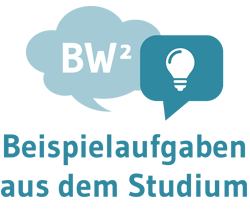English and American Studies (Anglistik / Amerikanistik, Bachelor of Arts) or, as it is called when referred to in the context of teacher training programmes (Lehramt), just plain English (Englisch, Bachelor of Education), consists of Linguistics on the one hand and Literary and Cultural Studies on the other. In English Linguistics students become proficient in the linguistic analysis of the structure and workings of the English language in all its varieties (British English, American English, etc. as well as English as a Lingua Franca). They learn about core methods in theoretical as well as applied linguistics and how to evaluate language phenomena and research results in linguistic domains such as phonetics, phonology, morphology, syntax, semantics and pragmatics. In Literary and Cultural Studies students learn to explore and analyse literary and cultural texts including their manifestations in various media (photography, film, digital formats etc.). These texts are addressed from various theoretical angles and placed in their specific socio-historical contexts, ranging from Shakespeare to the contemporary world on the British Isles, in North America, and in postcolonial Anglophone regions of the former British Empire and the Global South. A third strand of the study programme aims at students’ proficiency in Academic English, thus enabling them to present their results in clear, structured and well-argued prose. The teacher training program (B.Ed.) also comprises a fourth strand on Teaching English as a Foreign Language (Didaktik des Englischen). Teaching English as a Foreign Language provides students with courses that prepare them for the challenges of teaching English professionally. On the basis of a sound education in teaching methodology, it takes into account both, knowledge and research, to meet future English teachers' requirements, and it also aims at linking the development of intercultural competences with social and global issues such as migration, heterogeneity, inclusion or ecology.
Studienfach Anglistik / Amerikanistik – Grundständige Studiengänge an der Universität Tübingen
|
Fach |
Studienmöglichkeiten |
Abschluss |
Regelstudienzeit |
|
Anglistik / Amerikanistik |
Hauptfach oder Nebenfach |
B.A. |
6 Semester |
|
Englisch (Lehramt Gymnasium) |
Hauptfach |
B.Ed. |
6 Semester |
|
Englisch (Höheres Lehramt an Beruflichen Schulen) |
Zweitfach |
B.Ed. |
6 Semester |
|
Interdisziplinäre Amerikastudien |
Mono-Bachelor (studiert wird ausschließlich dieses Fach) |
B.A. |
8 Semester (mit Auslandsjahr) / |
An overview of the degree programs of the University of Tübingen can be found here.
"When I study English, the focus is on acquiring the English language."
No. Studying English requires a deep interest not only in mastering the English language but in all dimensions of the subject, i.e. language, literature, and culture. The English language is the vehicle and medium of teaching and studying English at university, so your English needs to be good when you come here. Nevertheless, you will participate in courses that will help you to continuously improve it.
"When I study English, I will have lots of spare time on my hands during term breaks."
No. The main component of studying English is doing lots of reading, both for courses and also beyond. There are regular reading assignments (novels, short stories, plays, poems, theoretical texts…) for courses and additional reading requirements for term papers which have to be written during term breaks.
"English at University is like English at school, only harder."
No. In comparison to school, studying English heavily emphasises the development of skills that enable critical and independent thinking with a lot less close guidance and structure than at school.
"Studying English requires me to go abroad during my studies."
Yes. Though it is not obligatory, it is strongly recommended. The English Department offers many exchange programs and advises students to do an exchange while at uni. You can either study abroad at another university or do an internship at a school. For most of these exchanges, you can also apply for financial support.
"Studying English literature means focusing primarily on texts by William Shakespeare and other dead white male authors."
Certainly not. While literary works that are considered canonical texts will play an important role in your studies, you will also get the chance to critically reflect on the status and function of a canon in general. Who is in and who is out and, most importantly, why and under which circumstances? Shakespearean sonnets as well as, for instance, contemporary song lyrics by female pop artists or collaborative digital fiction might therefore be part of your academic reading curriculum.
Graduates of English and American Studies will typically work in the following fields:
- Teaching (B.Ed.): completing the Bachelor of Education program (and, subsequently, the Master of Education) will enable you to become a teacher on "Gymnasium" level, and most B.Ed. graduates do exactly that. However, you may also find a spot in other branches of education, depending on your second subject and subsequent qualifications you may acquire (e.g. theatre pedagogy or museum educational service).
- Research: while there are not too many positions, you may also follow up your B.A. and M.A. with a PhD and go for a career in academia, i.e. teaching at university level and carrying out research.
- Publishing: many of our graduates start working in publishing in many different positions (e.g. editor, production manager, translator, literary agent); usually, publishing houses demand an internship and / or "Volontariat" in one of these areas as a starter.
- Marketing: again depending on the second subject and the focus of your studies, you can also find work in various companies and especially media outfits as well as advertising or travel agencies, and will typically work as public relations manager, advertising copywriter, corporate consultant, or project manager.
- Libraries and archives: while you will face some competition with specialists who have studied library science, given the affinity to texts of your degree you may find a position in one of these institutions, typically in some kind of leadership or management position.
- Cultural institutions: there are many language institutes, museums, and foundations looking for people with a degree in the humanities for filling positions such as administrator, clerical assistant, or executive officer.
- Journalism: while not as specialised as a degree in journalism itself, a degree in English and American Studies can nevertheless be relevant for certain journalistic platforms (print, TV, radio, web…), especially for positions such as online editor, TV / print journalist, or screenwriter.


